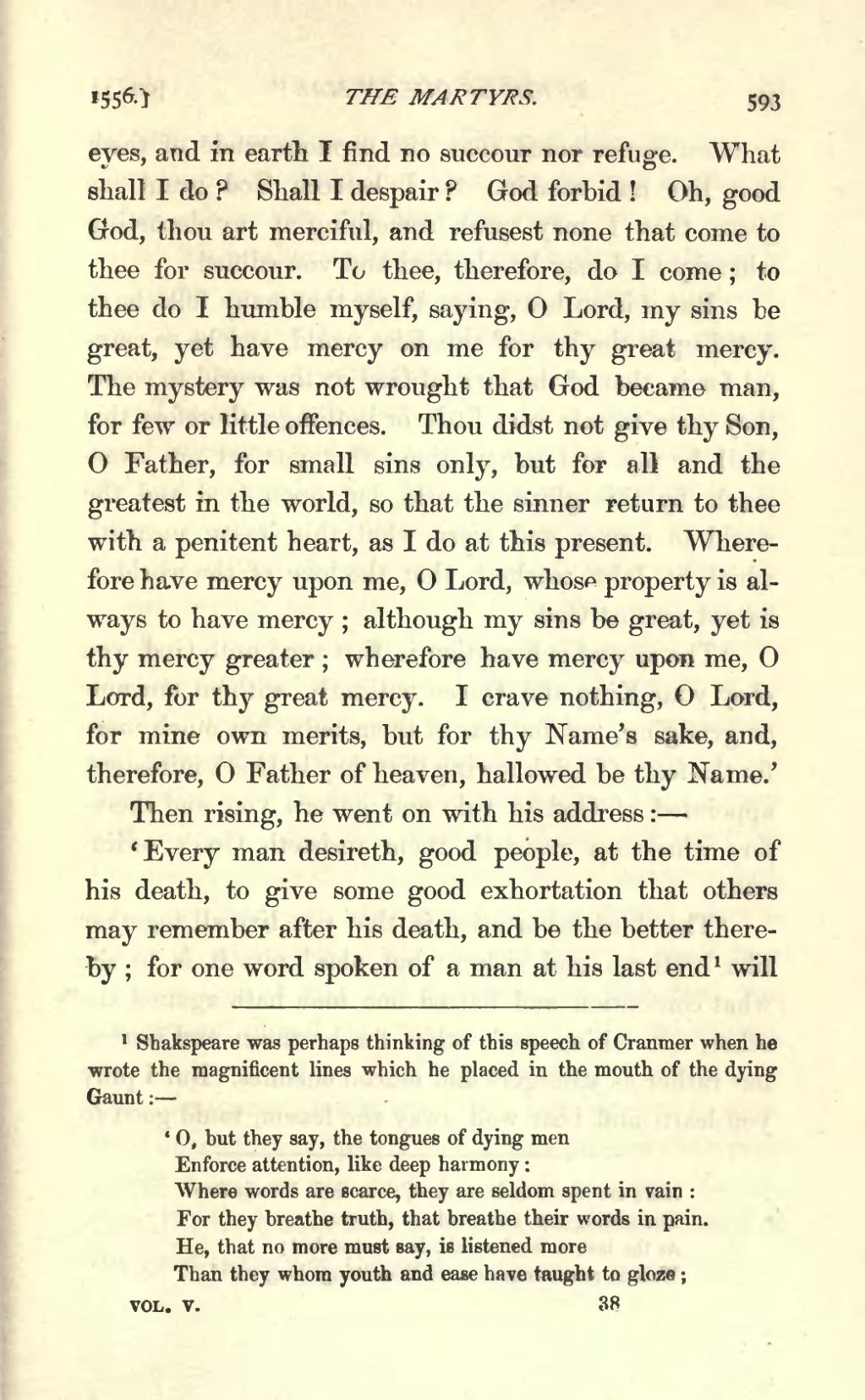eyes, and in earth I find no succour nor refuge. What shall I do? Shall I despair? God forbid! Oh, good God, thou art merciful, and refusest none that come to thee for succour. To thee, therefore, do I come; to thee do I humble myself, saying, Lord, my sins be great, yet have mercy on me for thy great mercy. The mystery was not wrought that God became man, for few or little offences. Thou didst not give thy Son, O Father, for small sins only, but for all and the greatest in the world, so that the sinner return to thee with a penitent heart, as I do at this present. Wherefore have mercy upon me, O Lord, whose property is always to have mercy; although my sins be great, yet is thy mercy greater; wherefore have mercy upon me, O Lord, for thy great mercy. I crave nothing, O Lord, for mine own merits, but for thy Name's sake, and, therefore, O Father of heaven, hallowed be thy Name.'
Then rising, he went on with his address:—
'Every man desireth, good people, at the time of his death, to give some good exhortation that others may remember after his death, and be the better thereby; for one word spoken of a man at his last end[1] will
- ↑ Shakspeare was perhaps thinking of this speech of Cranmer when he wrote the magnificent lines which he placed in the mouth of the dying Gaunt:—
'O, but they say, the tongues of dying men
Enforce attention, like deep harmony:
Where words are scarce, they are seldom spent in vain:
For they breathe truth, that breathe their words in pain.
He, that no more must say, is listened more
Than they whom youth and ease have taught to gloze;

